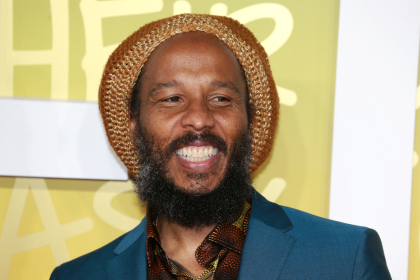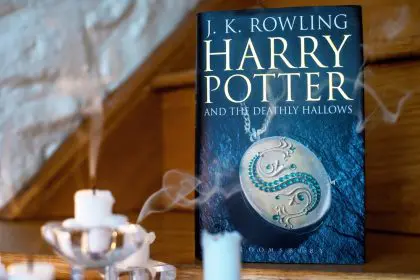
William A. Cooper, M.D., is on a mission to save lives by educating African Americans on the gravity of heart disease with the release of his new book, Heart Attack: Truth, Tragedy, Triumph. The book takes readers on the emotional journeys of family members who have lost loved ones to heart disease and other health-related issues. When he was 14, Dr. Cooper’s mother died of pancreatic cancer. This fueled his passion for becoming a doctor.
Dr. Cooper received a combined BA/MD from the University of Missouri-Kansas City School of Medicine. He completed postgraduate training in General Surgery and Cardiothoracic Surgery at Emory University. He also received his MBA from Emory University, Goizueta School of Business in May of 2013.
Dr. Cooper started his career in surgery in 1992 at Emory University in Atlanta, where he would later become an associate professor of Surgery.
Dr. Cooper is the medical director of Cardiovascular Surgery at WellStar Health Systems in Marietta, Georgia and a sought after on-air medical expert. Under Dr. Cooper’s direction, the Cardiovascular Surgery program at WellStar Health Systems is rated among the top 15% of cardiac surgery programs in the U.S. It is the only heart surgery program in the state of Georgia.
He is also a colonel in the U.S. Army Reserve and completed three tours in support of Operations Iraqi Freedom and Operation Enduring Freedom.
Dr. Cooper’s work has been published in national, peer-reviewed journals. He is a Fellow of the America College of Cardiology and the American College of Surgeons. He is also a member of the Society of Thoracic Surgeons, American College of Healthcare Executives, American College of Surgeons and American College of Cardiology to name a few. Dr. Cooper serves on several non-profit boards and is a frequent speaker for the community, business and professional organizations. Dr. Cooper was the 2015 Georgia Hospital Association, Hospital Heroes Physician of the Year.
He has endured bouts with PTSD (Post Traumatic Stress Disorder) and is a huge advocate for Veteran’s rights. In 2014, Atlanta City Council President named him to the City of Atlanta’s Commission of Veteran’s Affairs.
A husband and father of three, he is a proud member of Omega Psi Phi Fraternity Inc.
Here, Dr. Cooper talks about his new book, how his perspective changed and who believes is iconic.
Why did you write Heart Attack: Truth, Tragedy, Triumph?
I began my career in medicine in 1986. I have seen and treated numerous heart attacks during my thirty years as a cardiothoracic surgery specialist. At some point, I began to see more than just the heart attack, the X-rays, lab work, and the myriad of tests. I began to see people and the human suffering behind those devastating moments.
I believe that books, reviews, and monographs on the subject of heart disease are too sterilized and structured. They have a tendency to only give generic facts, figures, and solutions. The truth is that behind those statistics and numbers are humans that suffer from the terrible disease. Families and loved ones are also affected, and their experiences during stressful times also need to be highlighted.
What’s the story behind the title?
I have lost five of my siblings and my mother. Two of the siblings died of heart attacks or complications related to them. The others died of cancer, diabetes and AIDS. Although not all heart attacks, the stress and grief for me and my remaining family is no less than a “heart attack.” The title gets you, the stories keep you, and hopefully, the knowledge will guide you.
What do you hope readers will glean from reading your book?
Power, power to do better, to change to improve to live life every day and savor each and every moment. This book is about awareness and empowerment. I want the reader to first become aware of the impact of this disease on real people by identifying with the stories and secondly to be empowered with the knowledge to overcome this dreadful condition.
How long did it take you to write this book?
My writing started out as journaling over 10 years ago. The more I wrote, the more it became evident that I needed to make my stories into a book.
What was your regimen to complete this book?
I was totally unstructured as the end goal, in the beginning, was not a book. The writing was therapeutic for me to treat my memory loss related to PTSD while serving in Iraq.
How did you arrive at this career choice? Was it a deliberate decision or a gradual and natural evolution?
After my mother died of pancreatic cancer, I was determined to save the world by becoming a doctor and “curing” cancer. That road did not fit my desire for more immediate gratification in my career as a surgeon and thus cardiac disease became my choice.
What separates you from others in your field? What is unique to the experience that you create?
I can’t speak for others, nor do I compare myself to others. I just strive to be authentic in everything that I do. I realize and appreciate the fact that I was William Cooper long before I was Dr. Cooper and the foundation of my being is grounded in who I am and not what I have become. In other words, my profession did not make me, I make it better by being the authentic down to earth person that I am. I think often times, professionals of all kinds get lost in the hype and forget from whence their strength really comes. I strive every day to connect with my patients on their level, not mine.
For those considering entering this arena, what skill sets do you recommend mastering
Discipline and drive. Do not be deterred from your goals and aspirations.
What traits are most conducive to success?
Focus on the important things that will contribute to the achievement of your goals.
How do you stay at the leading edge of your craft?
I challenge myself and my staff to think outside the box. To always challenge assumptions and look for better, more efficient ways to get things done. Don’t just accept things as they are keep pushing for the best and the best will come.
Do you think that there are any widely held misconceptions about what you do? If so, what are they and how do you work to dispel them?
I’m not aware of any misconceptions specifically about what I do. However, I think there is a general lack of knowledge about health, healthcare, wellness and fitness in our society. I educate, one at a time and now with my book perhaps millions and someday perhaps many millions more through radio or TV.
How do you map out your goals? How do you measure your success?
Carefully. I try to stay focused and stay on tasks with the things I am passionate about. That begins by livening each day with intent; with a very discreet and specific goal in mind. I don’t keep score. My life is more of a journey rather than a destination. If I can help someone along the way then that alone is a success. I cannot see it any other way. All “blessings” manifest themselves in time. One cannot force this.
Who do you consider to be your peers in your field?
I have lots of great colleagues and friends.
Who do you see or use as examples to emulate?
I don’t emulate anyone. I seek to be the example, to create the standard and be the leader.
Name two of your top role models: one from your industry and one from outside of it.
I am extremely impressed with the poise, grace and power of our President, Barak Obama. This man has been put through hell and yet I have never seen him raise his voice or lose his head. If I had to pick someone in this contemporary society to emulate, he would be it. Likewise, I applaud what he has done with healthcare. The ACA although far from perfect, it got everyone thinking about the necessity for change. And that alone is a success.
Name three books, works, performances or exhibits that changed how you view life and/or yourself.
The Spontaneous Healing of Belief: Shattering the paradigm of false limits-by Greg Bradden.
Halftime-by Bob Buford
The Greatest Miracle in the World by Og Mandino
Silence: The Power of Silence in a World Full of Noise by Thich Nhat Hanh
Why do you consider continued learning important?
Fulfillment. One has to constantly improve oneself to attain the ultimate significance in life.
What affirmations do you repeat to yourself that contribute to your success?
I am the “Greatest Miracle in the World.”
What role does technology play in your day-to-day life? How do you utilize it?
Can’t live without it. Indelibly linked to it. Except when I am on vacation or doing me time. The connections quickly get lost.
What software, app or other technological innovation has made the biggest difference in your life and/or career?
Smartphones.
Please define your personal brand.
Coop the Doctor who will teach you how to put him out of business. Please.
What is your favorite vacation destination and why?
Beach bum. Just love the miracle of the oceans. No specific one as long as its clean and refreshing.
If you could change one thing about the world, what would it be?
I often wonder what the world would be like without racism.
If you could change one thing about yourself, what would it be?
I would love to be a little more focused. I am passionate about so many things that I often take on too much and thus become unproductive with some of the most important priorities.
What does it take to be iconic? In your estimation, who has achieved that status?
I guess I’m just not easily impressed, particularly with myself and certainly not with contemporary pop culturalists. However, I think there are many a great people in this world who have achieved iconic status in their respective fields. Unfortunately, we don’t often hear about the unsung as they are not in the media or considered celebrities. That’s a tough question for me because the awesomeness of the human spirit is in all of us. In its purest form, the root word icon refers to a rendition of Jesus Christ. I am not aware anyone who I think has achieved such greatness. We should all strive every day to be icons in our own right.










